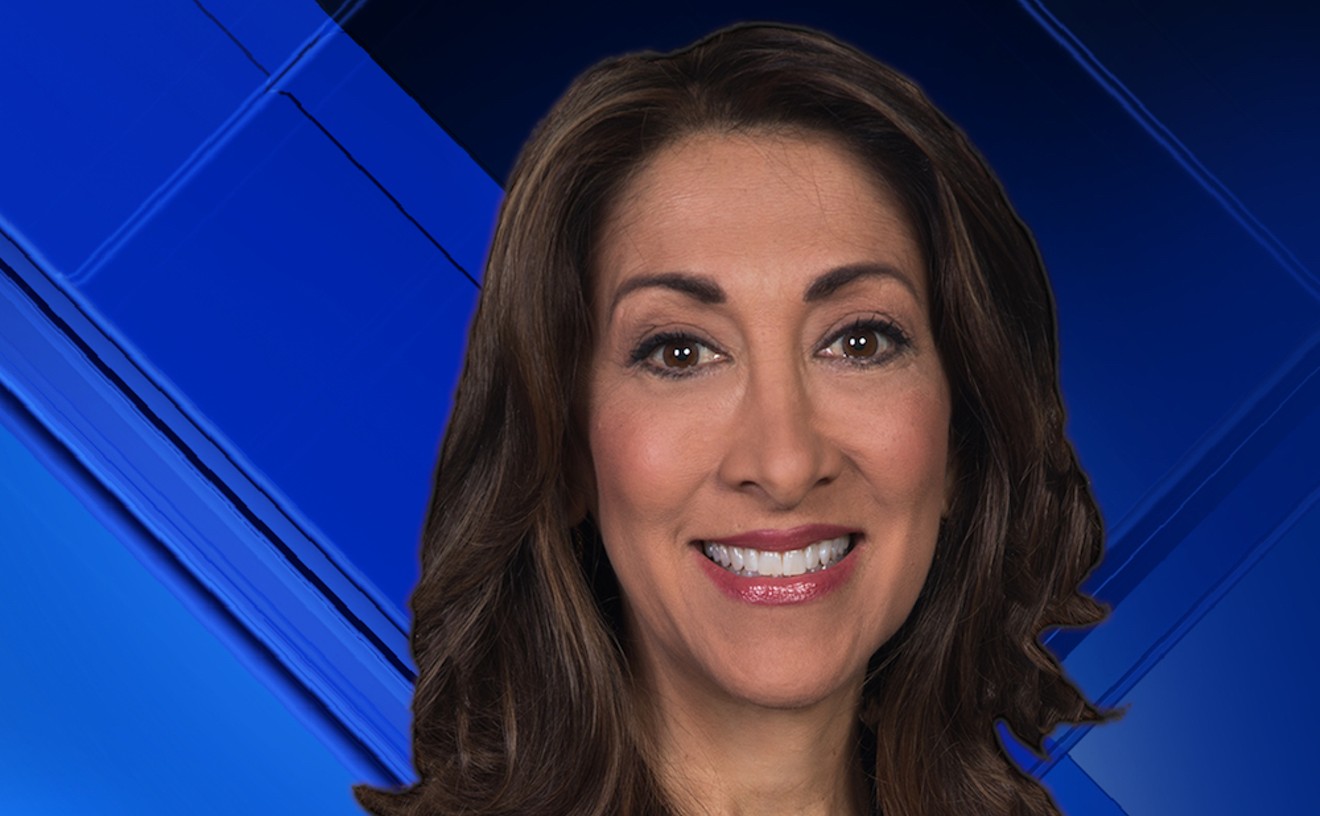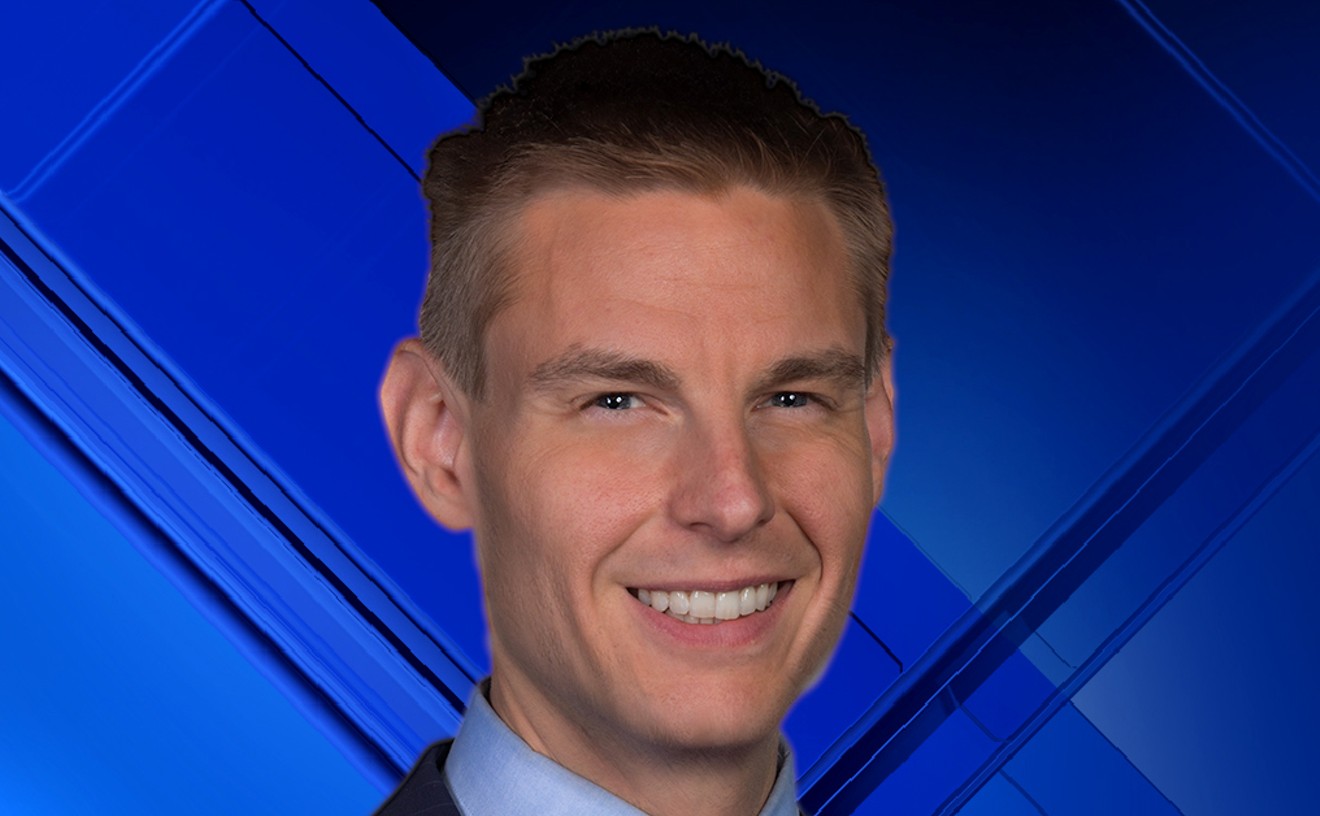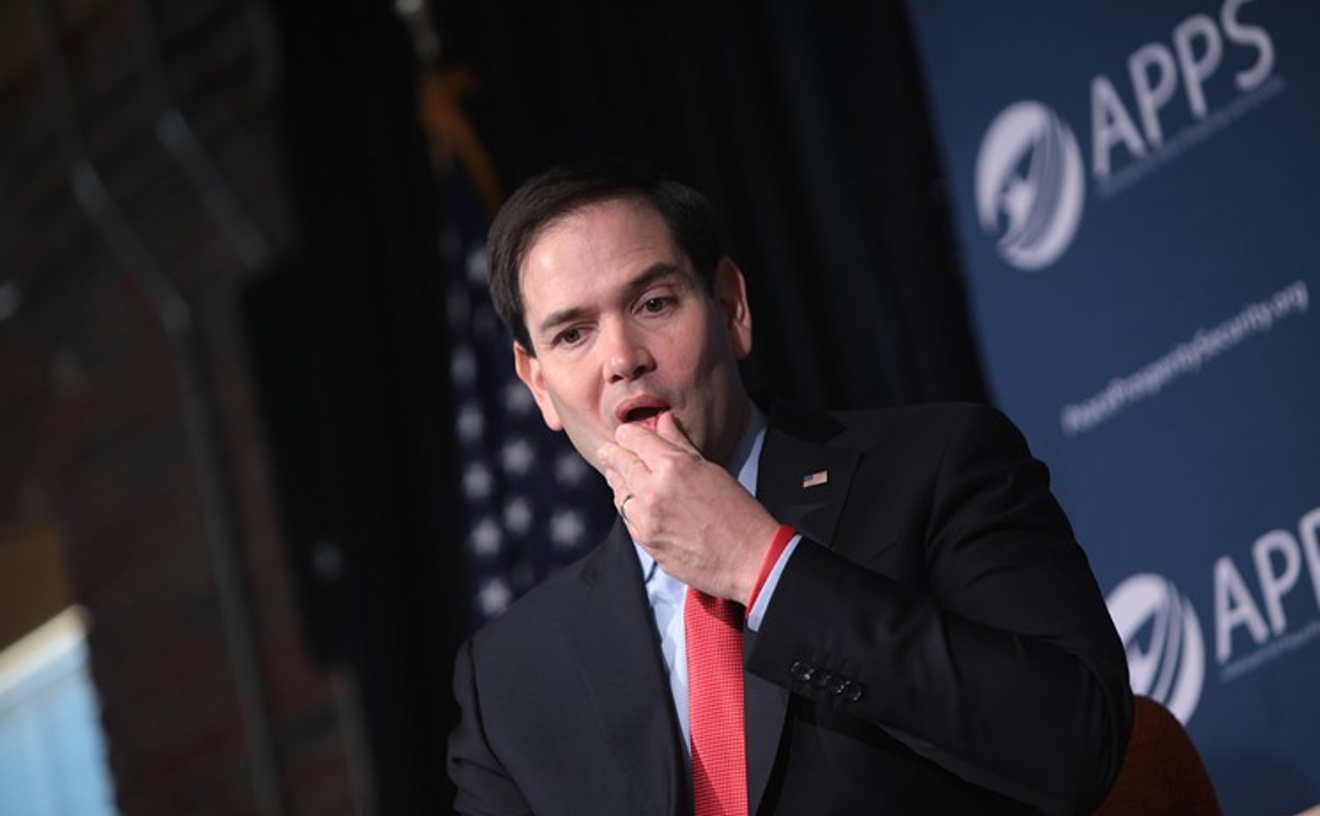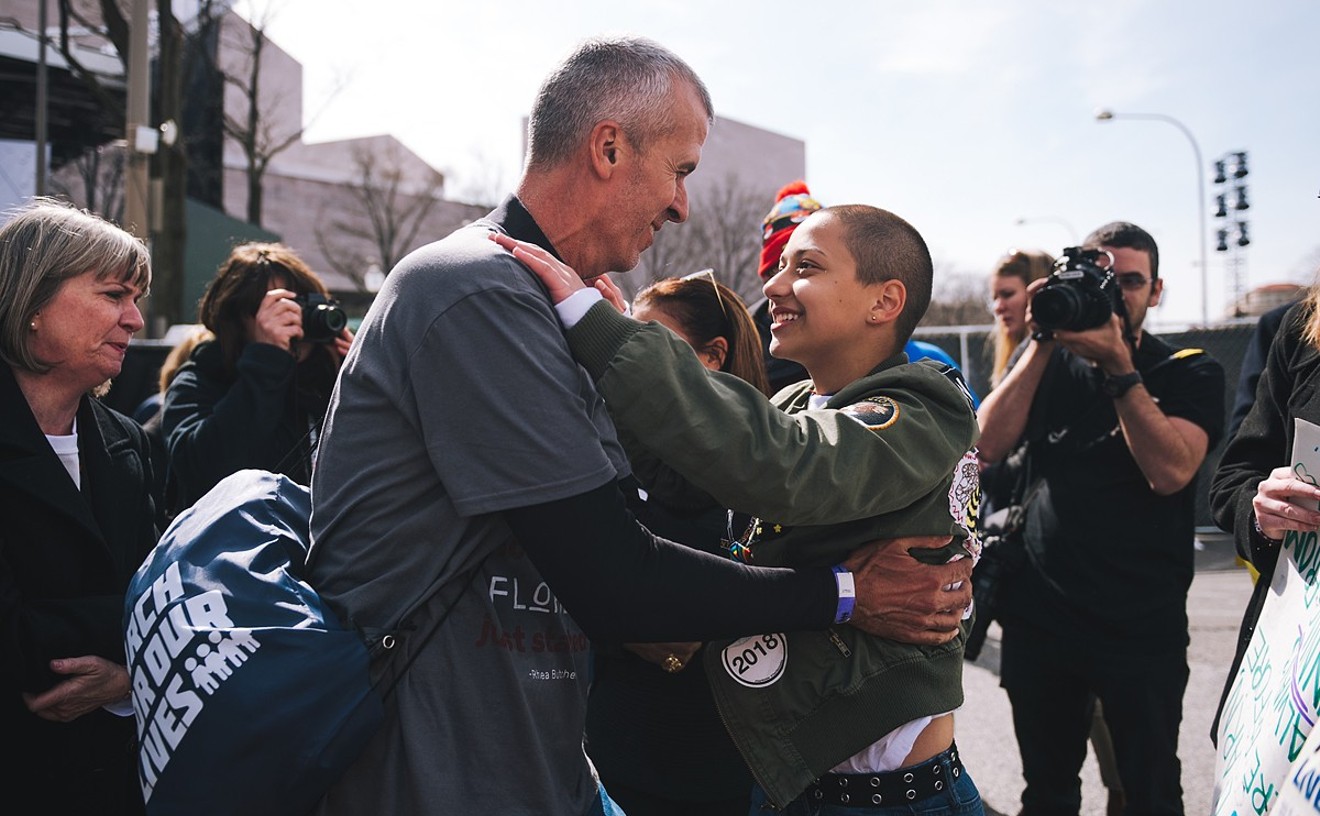When David Hogg was hiding in a closet to avoid being murdered at Marjory Stoneman Douglas High School in February, he probably wasn't thinking about how he'd be forced to spend the foreseeable future getting trolled, insulted, and downright smeared online. But such is the quality of internet discourse in 2018. More than any other Parkland survivor, Hogg, age 18, has been villainized by the right-wing media-sphere, all because he had the gall to demand that it become harder for some Americans to buy assault rifles. Hogg has been called a 27-year-old "crisis actor" (wrong), a liar who didn't live through the shooting (also wrong), a foulmouthed demon, a communist, a fascist, a Marxist, a Nazi sympathizer, and more. Someone made an entire website (HoggWatch.com) dedicated to smearing him. But what Hogg has done is hold a mirror up to show America its absolute ugliest, most craven side. Miami-area cops, Sinclair Broadcasting TV anchors, Fox News host Laura Ingraham, and others have been slammed for attacking Hogg personally. He's being attacked because he's winning.
Best Girl Gone Bad
Katherine Fernandez Rundle

It would be hard to find a time when Miami-Dade County State Attorney Katherine Fernandez Rundle could have been described as a "good" influence in Miami-Dade County. For the last 25 years, she's been Miami's top prosecutor, AKA the person tasked with charging poor black and brown Miamians with drug crimes while letting corrupt politicians and killer cops walk free without a legal scratch on them. But 2017 was the year Rundle's record caught up to her: After she shamefully announced she wasn't bothering to charge four state prison guards involved in the scalding-hot-shower death of schizophrenic inmate Darren Rainey, protests erupted, and Rundle was forced to give multiple rambling, dreadful, and easily picked-apart defenses in public and in the press. In 25 years, Rundle has never charged a Miami-area cop for killing a person on duty — this was the year the whole community seemed to realize she "went bad" a long, long time ago.

This might just be the greatest quote in Miami public-corruption history. It's all right there — the cold desperation, the plea for mercy, the inability to own up to one's mistakes despite knowing that everything will get a lot worse if you don't come clean right now. Last year, Miami Herald reporting duo Nick Nehamas and Joey Flechas nailed Grieco for collecting money from a so-called "straw donor," who was paid by a noncitizen to illegally contribute foreign money to Grieco's campaign for Miami Beach mayor. After the duo tied a political-action committee to Grieco, the reporters sat down in the Miami Beach city commissioner and lawyer's office in Brickell — where Grieco stared them right in the eyes and said the allegations were "absolutely untrue. You can look right into my soul." The Herald instead looked into his handwriting and found that Grieco had pretty clearly signed PAC documents. Grieco eventually pleaded no contest to straw-donor charges and was temporarily barred from running for office.
Best Flack
Ernesto Rodriguez, MBPD
Most government flacks respond to critical reporters in a few obvious ways: by screaming over the phone, ignoring requests for information, or publicly accusing journalists of lying. The Miami Beach Police Department's Ernesto Rodriguez is the rare public figure who seems to understand that it is a reporter's job to critique governmental decisions — he's happy as long as his side of the story is heard. It helps that "Ernie" secures information at a rapid-fire pace. It also helps that he's active on Twitter. During CNN's Parkland town hall, he was busy yelling at the National Rifle Association's Dana Loesch just like the rest of us.
Best TV Reporter
Glenna Milberg, Local 10

Glenna Milberg is the rare TV news reporter who seems to understand that her job is to critique powerful people, not to suck up to them. Milberg has been a fixture on South Florida TV for decades, and she's earned her airtime. Today she hosts This Week in South Florida, a public-affairs program where constituents can listen to candidates explain and defend their platforms. Where most TV reporters are occupied with ludicrous features about the latest, dangerous teenage social media challenges, Milberg spends her weekends pressing politicians about their thoughts on topics such as school funding or environmental policy.
Best TV News Anchor
Jawan Strader, NBC 6
TV news broadcasts are often vehicles for profoundly stupid commentary, outright government propaganda, and weird scaremongering. They're mostly just there to scare your grandparents into buying bread and water jugs when hurricane season starts. NBC 6 evening news anchor Jawan Strader offers much more than that. This year, Strader debuted an additional weekend program called Voices, which spotlights viewpoints from the city's black community. He has spent considerable time interviewing members of the Dream Defenders civil rights group about what it's like to "drive while black" and face racial profiling. He's also held panel discussions on untreated mental illness in black and brown communities, and even told the story of the "segregation walls" built during the Jim Crow era to separate Liberty City's black residents from nearby whites. In an era when some TV stations are forcing their anchors to read preapproved scripts praising President Trump, Strader is allowing the community at large to guide the conversation.
Best Sports Anchor
Clay Ferraro, Local 10

It's always dicey when longtime local sports anchors retire or move on to different markets. Miami takes its sports seriously, so if the new guy isn't on the home team, he needs to at least pretend to be. When Clay Ferraro joined the Local 10 News team in 2014 after working in Fort Myers for over a decade, even the most skeptical sports fans could tell right away he'd be a good fit. Whether it's a straightforward, quick hit during the news broadcast or a comedic sports parody sketch after the kids have gone to bed, Clay Ferraro's recaps are events worth watching in their own right.
Best Meteorologist
John Morales, NBC 6
John Morales' role in the South Florida community has grown in importance recently, not only because of the predicted threat of bigger, more powerful hurricanes brought on by climate change, but because of the beloved meteorologist's willingness to wade into what some see as political waters to educate the public on environmental matters. As a meteorologist, he views climate change as scientific, rather than political, in nature. Morales is active on Twitter and Facebook, where he shares news articles and the latest topical research alongside weekly weather reports. The issue became personal this year when the catastrophic 2017 Atlantic hurricane season — which included major hurricanes Irma, Jose, and Maria — decimated Caribbean islands including Puerto Rico, where Morales grew up. Like thousands of relatives of Hurricane Maria's victims, Morales went weeks unable to communicate with his family due to damaged infrastructure on the island. Perhaps for these reasons he has become even more dedicated to educating the public on ways to curb the looming threats of climate change. In March, Morales publicly declined an invitation to moderate a panel at FIU after learning that climate skeptic James Taylor would be participating. Instead, Morales hosted his own talk about the scientific method and the ways journalists can become complicit in climate denial efforts through ill-informed pursuits of objectivity.
Best Political Miscalculation
Marco Rubio Volunteering to Get Roasted on CNN by MSD Students

Few people handled the massacre at Marjory Stoneman Douglas High School as poorly as Marco Rubio. Florida's junior senator managed to make things worse for himself with every noncommittal remark he made in the wake of the shooting. The coup de grâce of his political self-immolation was his decision to take part in a CNN town hall alongside a handful of MSD's blisteringly intelligent, staggeringly capable student activists at an arena packed with Parkland parents and students. While it was a bold move to try to connect with his rightfully outraged constituents, Rubio did not fare well. When Fred Guttenberg, whose daughter Jaime was killed in the shooting, took the microphone, he immediately told Rubio his comments the preceding week had been "pathetically weak." As the crowd applauded Guttenberg, Rubio's face betrayed his trepidation. But it was when one of the most prominent voices of the #NeverAgain movement, Cameron Kasky, asked Rubio point-blank if he would refuse to take money from the National Rifle Association that the entire nation saw the senator's spirit break live on national television. Kasky repeated the question again and again as the jeers inside the BB&T Center grew louder. Rubio declined to reject future NRA contributions.
Best Activist
Emma González

From the moment Emma González took the stage at the Rally to Support Firearm Safety Legislation in Fort Lauderdale — just three days after 17 people were gunned down at her school — she has been a model of compassion and activism for people around the world. In her speech, she called "BS" on those who would dismiss her and her peers and asked politicians in the pockets of the NRA how much the lives of students were worth to them. From speaking to a few hundred people in front of the federal courthouse in Fort Lauderdale to addressing 800,000 in front of the U.S. Capitol during the March for Our Lives, González has not let tragedy harden her heart, nor fame diminish her integrity. Instead, she's been humbled by her platform, and she's ceded it to students of color in communities across the country who have traditionally been ignored in the gun reform debate.






